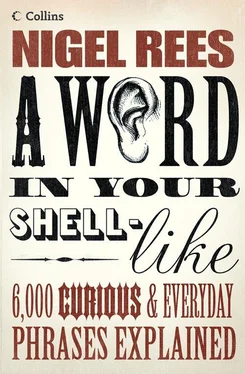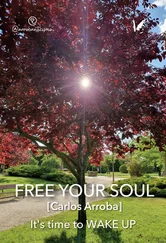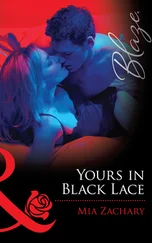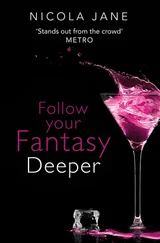American as apple pieThe OED2 does not find this expression before 1977. However, Flexner (1976) adds that ‘the apple itself is even more American than apple pie and Americans have used the word often’. Confirming the position of the apple as central to American life, Flexner also adds: ‘Until the 20th century citrus boom, apples – raw, in cider, and cooked in many dishes – were the most popular and talked about fruit in America.’
American CaesarSee BUTCHER.
(the) American dreamAn expression used to describe the ideals of democracy and standards of living that inspired the founding of the United States. Probably coined by J.T. Adams in The Epic of America (1931). Before that, in ‘America the Beautiful’ (1893), Katharine Lee Bates had written of a ‘patriot dream that sees beyond the years’. The American Dream is the title of a play (1961) by Edward Albee, and An American Dream (1965) is a novel by Norman Mailer.
American GothicTitle of a painting (1930) by Grant Wood (1892–1942) that shows an American farm couple posing stiffly in front of their Gothic house. The man in overalls carries a pitchfork. The equally dour woman wears an apron. It has been asserted that she is supposed to be his daughter rather than wife. Whatever the case, the artist used his own sister and his dentist as models. Wood’s treatment of them has been described as ‘half epic, half ironic’. Hence, American Gothic – the title of a horror movie (US 1988).
American pie American Pie was the title of a rites-of-passage film (US 1999) that follows the famous song ‘American Pie’ (1971), written and performed by Don McLean. This was a tribute to Buddy Holly and full of allusions to 1960s’ America. It has been claimed that ‘American Pie’ was the name of the aircraft in which Holly was flying when he died but this has been specifically denied by Don McLean. Presumably, if any particular pie was being evoked it was apple pie. See also under JACOB’S JOIN.
amid the glare of television lightsSee UNDER THE GLARE.
am I not a man and a brother?Accompanying a picture of a kneeling Negro slave in chains, this slogan appeared on a pottery cameo made by Josiah Wedgwood in about 1790. Subsequently, it was frequently reproduced during the fight against slavery and adopted by the Anti-Slavery Society. It also appears in Chap. 6 of Charles Kingsley, The Water Babies (1863).
am I right, or am I right?An expression brooking no debate. From American show biz, one suspects. In P. G. Wodehouse & Guy Bolton, Bring On the Girls , Chap. 9 (1954) there is: ‘“It’s no good for a revue, Flo [Ziegfeld]. It needs a situation back of it. It needs a guy named Bill and the girl who loves him.” He turned to Plum [Wodehouse]. “Am I right or am I right?”’ It is also in the script of the films Gypsy (US 1962) and Shampoo (US 1975). Compare: ‘Am I wet, or am I wet?’ from Henry Reed, A Very Great Man Indeed (1953) and what Mae West asks in I’m No Angel (1933): ‘Is that elegant, or is that elegant?’ It builds of course on the more usual expression ‘am I wrong or am I right?’ The format endures: ‘Is that funny or is that funny?’ – from the BBC radio show Round the Horne (10 April 1966); ‘[Of a dog] is he great or is he great?’ – Thames TV, Rock Follies (2 March 1976); ‘Is that a great theme or is that a great theme?’ – same show (9 March 1976).
amor vincit omnia [love conquers all]One of the best-known proverbial expressions of all. It is from Virgil’s Eclogues , No. 10, line 69. Chaucer’s Prioress had it on her brooch, as mentioned in ‘The General Prologue’ to The Canterbury Tales.
(—don’t) amount to a hill of beansMeaning, ‘—don’t amount to anything.’ One of the most remembered lines from the film Casablanca (US 1942) is the one in which Rick (Humphrey Bogart) says : ‘Ilsa, I’m no good at being noble, but it doesn’t take much to see that the problems of three little people don’t amount to a hill of beans in this crazy world.’ An earlier use of the ‘hill of beans’ phrase – ‘Ancestors are a poor excuse for not amounting to a hill of beans’ – is quoted in Wolfgang Mieder, Talk Less and Say More: Vermont Proverbs (1986) and OED2 has an 1863 (US) citation of this same version. A parallel expression has ‘row of beans’. From P. G. Wodehouse, Psmith Journalist, Chap. 9 (1915): ‘Look at Everybody’s Magazine. They didn’t amount to a row of beans till Lawson started his “Frenzied Finance” articles.’
AmplexSee EVEN YOUR BEST.
amusing, awful and artificialThis is reputedly King James II’s description of St Paul’s Cathedral, London, using three words whose meanings have since changed. He meant that it was ‘pleasing, awe-inspiring, and skilfully achieved.’ The earliest citation found is in Simeon Potter’s Our Language (1976). But in William Kent’s An Encyclopedia of London (1937), it is rather Charles II who in 1675 approved a new design for St Paul’s because it was ‘very artificial, proper and useful.’ As all monarchs from King James I to Queen Anne seem to have had the remark ascribed to them, perhaps a true source for this phrase will never be found.
(the) anatomy of—A title format, of which the first notable use is The Anatomy of Melancholy (1621) by Robert Burton. That book used the word ‘anatomy’ in an appropriate manner, its subject being a medical condition ( anatome is the Greek word for dissection). The modern vogue for ‘anatomies’ of this and that began with the film Anatomy of a Murder (US 1959) and was followed by Anthony Sampson’s book Anatomy of Britain , first published in 1962 and revised a number of times since.
ancestral vices/voices Ancestral Vices is the title of a novel (1980) by Tom Sharpe; Ancestral Voices is the title of the first volume of diaries (1975) by the architectural historian James Lees-Milne (1908–97). Both allude to the poem ‘Kubla Khan’ (1798) by Samuel Taylor Coleridge, which contains the lines: ‘…Five miles meandering with a mazy motion / Through wood and dale the sacred river ran, / Then reach’d the caverns measureless to man, / And sank in tumult to a lifeless ocean: / And ‘mid this tumult Kubla heard from far / Ancestral voices prophesying war! / The shadow of the dome of pleasure / Floated midway on the waves; / Where was heard the mingled measure / From the fountain and the caves. / It was a miracle of rare device, / A sunny pleasure-dome with caves of ice!’ The poem as a whole has been ransacked for all subsequent titles of Lees-Milne’s published diaries: Prophesying Peace (1977), Caves of Ice (1983), Midway on the Waves (1985), A Mingled Measure (1994), Ancient As the Hills (1997), Through Wood and Dale (1998), Deep Romantic Chasm (2000), Holy Dread (2001), Beneath a Waning Moon (2003). Compare STATELY PLEASURE DOME.
and all because the lady loves Milk TrayCadbury’s Milk Tray chocolates have been promoted with this line since 1968. On British TV, the line was the pay-off to action adverts showing feats of James Bond-style daring that climaxed with the presentation of a box of the chocolates to a suitably alluring female.
—and all that‘And all that sort of thing.’ Apparently the phrase was in the language before Sellar and Yeatman used it in the title of their cod volume of English history, 1066 And All That (1930). See also GOODBYE TO ALL THAT.
Читать дальше












